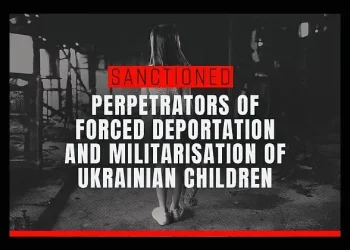The UK Foreign Office has summoned the Russian Ambassador to discuss the revocation of a Russian diplomat’s accreditation.
Diplomatic Tensions Escalate
The recent summons of the Russian Ambassador by the UK Foreign Office highlights the ongoing tensions between the two nations. This move follows a series of diplomatic expulsions and accusations of espionage and disinformation campaigns.
The UK has expressed strong condemnation of Russia’s actions, which it believes are aimed at undermining British security and democracy, as well as deterring support for Ukraine. The situation reflects a broader pattern of strained relations between Russia and Western countries, particularly since the conflict in Ukraine began.
The UK’s decision to revoke the accreditation of a Russian diplomat is part of a broader strategy to address perceived threats from Russia. This includes tightening visa rules for Russian nationals and withdrawing diplomatic status from certain Russian properties in the UK. Such measures are intended to counter what the UK sees as aggressive behavior by Russia.
The diplomatic standoff also involves reciprocal actions, with Russia expelling UK diplomats from Moscow. This cycle of expulsions and counter-expulsions reflects the deepening rift between the two countries. The UK has emphasized that Russia’s actions violate the Vienna Convention on Diplomatic Relations, which outlines the principles for diplomatic conduct between nations.
Implications and Outcomes
The implications of these diplomatic tensions are far-reaching. They not only strain relations between Russia and the UK but also impact broader international dynamics. The UK’s stance is part of a coordinated effort by Western countries to counter Russian influence and support Ukraine. This includes economic sanctions and military aid to Ukraine, which Russia views as an escalation of the conflict.
The situation also raises concerns about the potential for further escalation, including the possibility of military action or increased cyberattacks. The UK has emphasized that it will not be deterred by Russia’s aggressive tactics and will continue to support Ukraine and uphold international law.
In terms of specific outcomes, the revocation of diplomatic accreditation can limit the ability of Russian diplomats to operate effectively in the UK. This can hinder Russia’s ability to conduct diplomatic business and gather intelligence, potentially weakening its position in international negotiations.
| Country | Action | Response |
|---|---|---|
| UK | Revoked accreditation of a Russian diplomat | Russia expelled UK diplomats from Moscow |
| Russia | Expelled UK diplomats, tightened visa rules for UK citizens | UK tightened visa rules for Russians, withdrew diplomatic status from Russian properties |
Policy and Regulatory Shifts
The current diplomatic tensions are accompanied by significant policy shifts. The UK has been strengthening its stance against perceived Russian aggression, including tightening visa rules for Russian nationals and enhancing security measures around diplomatic missions. These moves are part of a broader strategy to protect national security and uphold international law.
The situation also highlights the importance of international agreements like the Vienna Convention on Diplomatic Relations. The UK has emphasized that Russia’s actions violate these principles, which are crucial for maintaining diplomatic relations and preventing conflicts.
In response to these developments, the UK is likely to continue strengthening its alliances with other Western countries to counter Russian influence. This includes increased cooperation on defense and intelligence matters, as well as coordinated diplomatic efforts to isolate Russia internationally.
Related Policies
- Vienna Convention on Diplomatic Relations: This international treaty outlines the principles for diplomatic conduct between nations, including the inviolability of diplomatic missions and the duty of host countries to protect foreign diplomats.
- UK Sanctions Policy: The UK has imposed economic sanctions on Russia in response to its actions in Ukraine. These sanctions target key sectors of the Russian economy and are designed to pressure Russia into changing its behavior.
Did You Know?
The Vienna Convention on Diplomatic Relations, which Russia is accused of violating, has been ratified by nearly all countries worldwide, including Russia and the UK. This treaty is fundamental to maintaining diplomatic relations and preventing conflicts between nations.
Future Implications
Looking ahead, the diplomatic tensions between the UK and Russia are likely to persist. The situation in Ukraine remains a major point of contention, and both sides are unlikely to back down. The UK will continue to support Ukraine and work with other Western countries to counter Russian influence.
The long-term implications of these tensions could include a further deterioration in relations between Russia and the West. This could lead to increased military spending, heightened cybersecurity threats, and broader economic consequences.
Despite these challenges, the UK remains committed to upholding international law and protecting national security. This includes maintaining strong alliances with other countries and continuing to support Ukraine in its conflict with Russia.
Closing Thoughts
The current diplomatic standoff between the UK and Russia reflects deeper geopolitical tensions. As both countries continue to assert their positions, it is crucial for international diplomacy to play a role in resolving these conflicts peacefully. The UK’s commitment to supporting Ukraine and upholding international law will remain central to its foreign policy.
For those interested in understanding the evolving situation, following updates from government sources and international news outlets will provide valuable insights into the ongoing developments.
Ultimately, resolving these tensions will require a concerted effort from all parties involved, emphasizing dialogue and cooperation over confrontation.









